Candidate Directors for the 2019 Elections
Below you find a detailed description of each of the 14 candidates, in alphabetical order. You can find even more information about them on their personal websites. This year 5 new Directors for 2020-2022 will be elected.
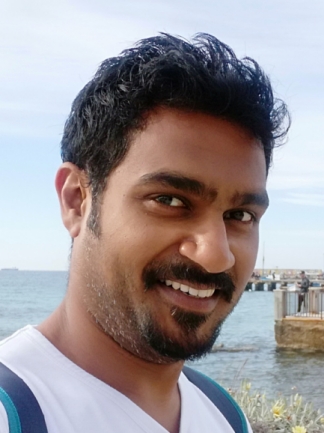 |
Shailesh Appukuttan
Postdoc MemberCentre National De La Recherche Scientifique
Gif-Sur-Yvette
France |
I did my undergraduate studies in computer science, and then worked for a year in the IT industry, before rejoining academia. My doctoral work involved the modeling of syncytial smooth muscle networks. I was also involved in projects on the modeling of callosal neurons and medium spiny neurons. I served as a teaching assistant for 5 years for courses such as Biopotentials, Bioelectricity and Advanced Cellular Electrophysiology, and also supervised research trainees. Currently, I am a postdoctoral researcher in the Neuroinformatics Group (Neuro-PSI) at CNRS working on the Human Brain Project, and also serve on its data governance committee. My work involves the development of a model validation framework for neuroscience, and I am also involved in the ongoing development of PyNN.
|
| |
Motivation:
Becoming an OCNS director, and thereby interacting with researchers from around the world, is an opportunity for me to widen my horizons. I have greatly benefited from the diversity in thought processes that arises through discussions with other researchers in the field. Also, it offers me a platform to share my expertise and experiences with students and young researchers from all over the world.
OCNS and CNS participation:
Attended 1 CNS meeting(s), was reviewer for meetings. OCNS member since 2013.
Other information:
I have organized several NEURON based modeling workshops. Some of these were aimed at research students, while others served to provide an overview of the field of computational neuroscience to high school students. I have authored tools and models for neuroscience which have been made available on SimToolDB and ModelDB. Since 2018, I serve as a committee member for 'HPC for Neuroscience' in PDP.
|
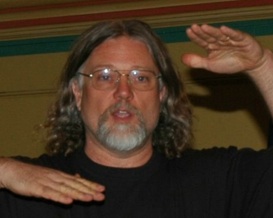 |
James Bower
Faculty MemberSouthern Oregon University
Ashland
United States |
Dr. Bower is an American computational neuroscientist and current Executive Director, American Association for the Advancement of Science (AAAS) Pacific Division. He is currently an Affiliate Professor of Biology at Southern Oregon University where he is teaching general educational courses in science to non-science majors. Along with John Miller, Dr. Bower was a co-founder of the CNS meeting and was its executive director for the first ten years. He was also co-meeting local organizer for CNS 2010 in San Antonio Texas. He is a co-founder of the Journal of Computational Neuroscience and remains on its editorial board as well as the art editor for its cover. His laboratory is responsible for creating the GENESIS neural simulator and his research over many years has involved computational studies of the cerebellum and cerebral cortex with special emphasis on the olfactory system. Dr. Bower has published more than 200 scientific articles, several books, and served on scientific and educational advisory committees for numerous national organizations including the National Academy of Sciences, the National Science Foundation, and the National Institutes of Health. Dr. Bower serves on the editorial board of a number of scientific journals. Since 1999, Dr. Bower has also been CEO and Chairman of the Board of Numedeon Inc, founders of Whyville.net , an educational Internet site geared towards children ages 8¿14+, which engages its users in learning about a broad range of topics, including science, business, art and geography. He is also currently CEO of Virtual Worlds I.P. Inc. and Fundamental Learning Inc. Dr. Bower lives in Ashland Oregon where he owns and manages a horse stable, plays music, gardens, is raising his final two children to adulthood, and whenever he can gallops across the beaches of the beautiful Oregon Coast.
|
| |
Motivation:
Well there is a good question and one I have pondered myself, actually over the last several years. As one of the two original founders of the CNS meeting, and as its executive director for the first 10 years, it is reasonable to claim that I have already made a contribution. Now in a (not) semi-retired state, I have many other things to do, including my efforts to enhance the impact and significance of science and scientists more generally through my work with the American Association for the Advancement of Science. However, my heart remains with computational neuroscience - which I deeply believe must increasingly become the basis for neuroscience as a whole. As many reading this may know, my views on that point are perhaps somewhat eccentric, and certainly strong. So, why jump back into helping to steer OCNS? I would like to hope that my perspective and long term commitment to this field, would be of use to OCNS, now as a mature organization. At the same time, I think there are many new and important things we can do together to further advance our discipline and its impact.
OCNS and CNS participation:
Attended more than 5 CNS meeting(s), was reviewer for more than 5 meetings. OCNS member since founding.
Other information:
As those of you who heard my presentation at the CNS meeting in Seattle know, I am particularly interested in extending and building new mechanisms for cooperation and publication in computational neuroscience. Having worked on that issue through the GENESIS project since 1984, I believe that it is time to transform the way we collaborate and communicate as computational neurobiologists. I would very much like to have OCNS take a lead in developing a system to do so. Through AAAS, I am also very actively involved in figuring out new ways to have science have an impact on society as a whole. My experience and efforts there may very well also be useful in advancing OCNS.
|
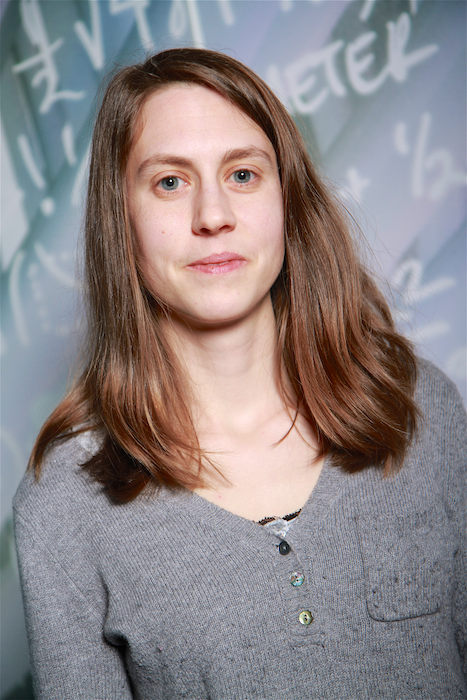 |
Laure Buhry
Postdoc MemberInria Nancy-Grand Est
Nancy
France |
Research area: detailed biophysical and anatomical modeling of the hippocampal formation activity in the healthy and epileptic hippocampus. We particularly focus on the mechanisms underlying oscillatory changes between sleep and the awake state, and on the neural correlates of cognitive impairments in patients suffering from refractory epilepsy. ,Since 2013: assoc. professor at the Univ. of Lorraine/Lorraine Laboratory of Informatics and its Applications, France. ,2012-2013: post-doc (Inria Nancy-Grand Est, France). Topics: modeling neural mechanisms of general anesthesia. ,2010-2012: post-doc (Ruhr-Univ. Bochum, Germany). Topics: memory replay/preplay. ,2007-2010: Ph.D. in the area of comp. neurosci. (Univ. of Bordeaux, France) ,2007: Master in Science of Cognition (Univ. of Bordeaux) ,2006: Master in Math (Univ. of Bordeaux) ,2004: Bachelor in Math.
|
| |
Motivation:
Becoming an OCNS director would be a great opportunity to participate in the life of computational neuroscience community, to discuss ideas about the organization of the computational neuroscience field worldwide, like scientific positioning and needs, scientific publishing, dissemination, etc.
OCNS and CNS participation:
Attended 4-5 CNS meeting(s), was reviewer for 2-3 meetings. OCNS member since 2013.
Other information:
I am in the process of creating an epi-journal in computational neurosciences: i.e., an open-access peer-reviewed international journal without submission fees, nor publishing fees. Such journals already exist in Math or Physics, and are probably the future of scientific publishing. The journal would be hosted by a dedicated platform provided by the CNRS or Univ. of Lorraine and we hope its development will be morally supported by the comp. neurosci. community.
|
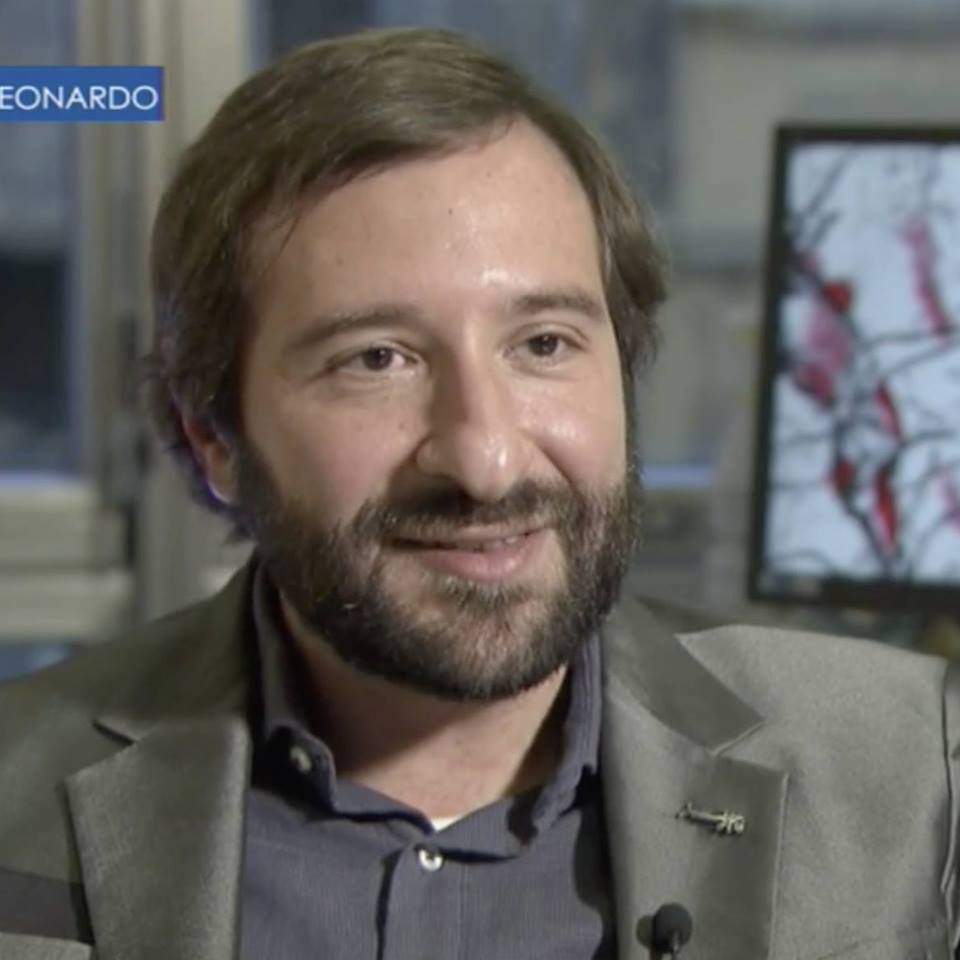 |
Corrado Cali
Faculty MemberKaust
Thuwal
Saudi Arabia |
I have a MSc in electronic engineering at Politecnico di Torino, Italy. In 2006 I completed my thesis in the lab of Henry Markram, under the supervision of Michele Giugliano, at EPFL (Lausanne, Switzerland), and joined the lab of Paola Bezzi at UNIL (Lausanne, Switzerland). I got the PhD in 2012; my research was focused on elucidating the mechanisms of release of glutamate and dopamine from astrocytes. After one year as postdoc with Graham Knott, where I deepend my skills in the 3DEM, I joined Magistretti¿s lab in KAUST (Saudi Arabia). I am leading a collaboration with BBP (Geneva, Switzerland) to investigate the mechanisms of metabolic support of astrocytes to neurons, by combining mathematical simulations and morphological 3DEM to generate accurate spatiotemporal simulations of the ANLS.
|
| |
Motivation:
I worked as experimentalist and became expert in astrocytes at the beginning of my PhD. Recently, we are attempting to model astrocytes and metabolism. This field is relatively young, and I found a vivid community around this topic in the last OCNS meeting where I was invited to speak, so I would like to be centrally involved in this upcoming field.
OCNS and CNS participation:
Attended 1 CNS meeting(s), was reviewer for meetings. OCNS member since 2019.
Other information:
My first publication as an undergrad was a computational work on Gap Junctions (Cali et al., 2008); recently, we published two papers in collaboration with BBP, on our computational approach to model astroglial metabolism (Coggan et al, 2018, Plos Comp. Biol; Coggan, Cali et al.,2018, Frontiers in Neuroscience).
|
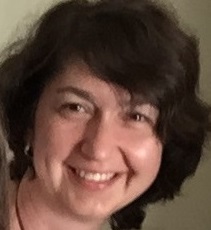 |
Rodica Curtu
Faculty MemberUniversity Of Iowa
Iowa City
United States |
I am by training an applied mathematician, but I have worked in the field of mathematical and computational neuroscience since graduate school (2003; University of Pittsburgh; with Bard Ermentrout as thesis advisor). Soon after graduation, I took an academic appointment in Romania while, in parallel, I collaborated as an informal postdoc with scientists from the Center for Neural Science at New York University (John Rinzel & Nava Rubin) on a computational neuroscience and visual science project. Since then, interdisciplinary collaborations have been a significant component of my research program with applications to cell biology, cognition, and visual and auditory perception. Current position: Associate Professor, Mathematics, University of Iowa.
|
| |
Motivation:
Having a theoretical background and learning-by-doing to work with neuroscientists showed me the importance of collaborative, interdisciplinary research. As OCNS director I would like to help promote computational neuroscience to young researchers through scientific meetings and new opportunities for training in large-scale data analysis and data-driven modeling linked to experimental neuroscience.
OCNS and CNS participation:
Attended 2-3 CNS meeting(s), was reviewer for 1 meetings. OCNS member since 2017.
Other information:
Co-organizer of the conference "Nonlinear Dynamics and Stochastic Methods: From Neuroscience to Other Biological Applications" (Pittsburgh, PA 2014) and member in the scientific/program committee of three other international conferences on mathematical neuroscience (ICMNS; in France and Denmark; 2015, 2018, 2019); reviewer for OCNS and Cosyne.
|
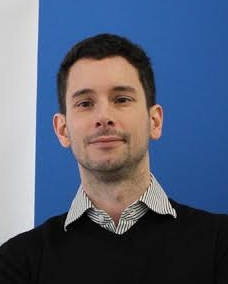 |
Maurizio De Pitta
Postdoc MemberBcam -- Basque Center Of Applied Mathematicsw
Leioa
Spain |
Since August 2018 I joined the Mathematical, Computational and Experimental Neuroscience group at the Basque Center of Applied Mathematics, pursuing my own research agenda in computational modeling of Alzheimer¿s disease and neural network aging dynamics. Previously I was at INRIA (France) and at The University of Chicago, developing computational models of neuron-glial networks. The overarching focus of my research are neuron-glial interactions which I study from an interdisciplinary perspective to tackle different aspects of theoretical, experimental and translational neuroscience, from subcellular to synaptic, network and system¿s levels. In this framework I develop expertise in modeling of calcium signaling, spiking networks models, mean-field theory and synaptic learning rules.
|
| |
Motivation:
I am an enthusiastic supporter of OCNS meetings, and I would like to get engaged with their organization, leveraging on multidisciplinarity and inclusivity to strengthen on timeliness, social impact and translational aspects of ongoing CNS research. Yearly meetings need to attract a wider audience, strengthening links between CNS and fields like neuroengineering, ML and computational medicine.
OCNS and CNS participation:
Attended 2-3 CNS meeting(s), was reviewer for meetings. OCNS member since 2013.
Other information:
I am a reviewer on 10+ CNS-related journals, including publications by the APS and the Nature Group. I have co-edited a book on Computational Glioscience, and organized 4 international workshops in CNS-related topics (1 at the OCNS meeting). I am supervisor of two PhD students on CNS projects in Spain and Switzerland.
|
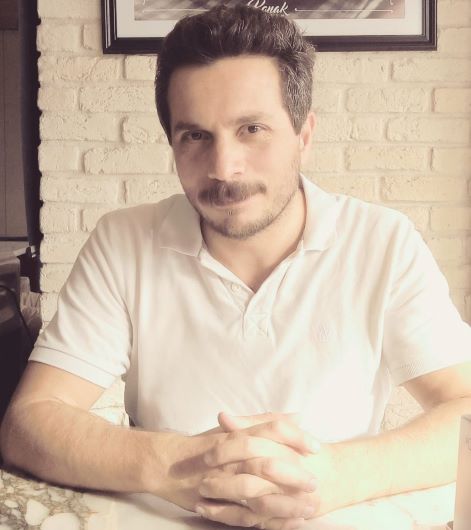 |
Rahmi Elibol
Student MemberIstanbul Technical University, Erzincan University
Erzincan
Turkey |
I was graduated from Electrical and Electronics Eng. at Karadeniz Technical University. After working as an engineer over six years, I attended Istanbul Technical University (ITU), Science and Technology Inst., Electronics Eng. M.Sc. program and graduated on June, 2013. I am now continuing Ph.D. program in the same institute at ITU. I am working as research and teaching assistant in Electrical and Electronics Eng. Dep. at Erzincan University. I am interested in computational neuroscience and computational modeling of biophysical networks; I especially focused on basal ganglia (BG) circuits. I worked on modeling the effect of dopamine (DA) on striatal medium spiny neuron (MSN) using nonlinear dynamical system approach and tried to explain the role of DA on the activation of MSN.
|
| |
Motivation:
I want to represent a lesser community interested and working in computational neuroscience; those that does not belong to a well-known laboratory or group. And do this in two ways, while informing the board of directors about these researchers¿ problems, and how important for them to attend events organized by OCNS, I will also try to outreach more to the researchers who are not part of a group.
OCNS and CNS participation:
Attended 2-3 CNS meeting(s), was reviewer for meetings. OCNS member since 2015.
Other information:
Though, there are quite a number of people working on computational neuroscience in Turkey, they are not much in contact. So in order gather them together and especially to help M.Sc. and Ph.D. students in recognizing the possibilities, I took part in organizing a summer school and courses on computational neuroscience in Turkey.
|
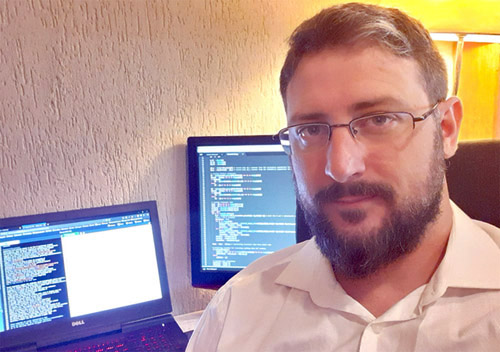 |
Mauricio Girardi-Schappo
Postdoc MemberUniversity Of Sao Paulo
Ribeirao Preto, Sp
Brazil |
A PhD in Physics who's eager to understand the workings of brain function. I have been using theoretical and data-driven modeling, from individual neurons to systems, and to the whole brain, to unveil the mechanisms that give rise to thoughts. I worked with epilepsy (f)MRI during my postdoctoral experience in the Montreal Neurological Institute. Now, as a postdoc in the University of Sao Paulo, I have been working with theoretical modeling of homeostatic mechanisms that balance synaptic currents, and also with modeling of EEG signals from epilepsy patients. I will soon be heading to a third postdoc in the University of Ottawa to study memory formation in the Hippocampus.
|
| |
Motivation:
I will work within OCNS to strengthen the support and visibility of exceptional theoretical research, specially the development of general models that are able to enhance our current integrative understanding of brain function. I will also work on enlarging the reach of Computational Neuroscience, and making our meetings accessible to a diverse community.
OCNS and CNS participation:
Attended 2-3 CNS meeting(s), was reviewer for meetings. OCNS member since 2010.
Other information:
I give talks regularly in Brazilian and international events of scientific dissemination for the community, such as the Pint of Science, and other more localized events in public educational institutes and universities. I usually try to bring Neuroscience, from the molecular to the whole brain scale, to the reach of students and adults who are interested in understanding how the brain works.
|
 |
Nicolangelo Iannella
Postdoc MemberUniversity Of Oslo
Oslo
Norway |
I received BSc, BSc(Hons) and MSc degrees in Theoretical Physics from the University of Adelaide and Flinders University of South Australia in 1990, 1991 and 1995, respectively, and the PhD in Computational Neuroscience from the University of Electro-Communications, Japan in 2009. From 2009, he was a Postdoctoral Researcher in RIKEN BSI. In 2010, he won the prestigious Australian Research Council (ARC) Australian Postdoctoral Award (APD) fellowship, based at the University of Adelaide from 2010-2014. From 2014-2017 he was an adjunct research fellow at the University of South Australia. From 2016-2018, he was a Cascade (Marie Curie) Research Fellow in Mathematical Sciences at the University of Nottingham. From 2018, he is currently senior research fellow at the University of Oslo. His research interests include synaptic plasticity, neuronal dynamics and neuromorphic engineering. Dr Iannella is a member of OCNS, INNS, SFN and IEEE.
|
| |
Motivation:
OCNS¿ common goal is to further our understanding of brain science and help unravel the causes and treatment of brain disorders through joint efforts in mathematics, computer modelling, and experiments. As director I would continue fostering interdisciplinary interactions and encourage interacting with engineers to spread awareness of neuromorphic engineering as a means of translating models to hardware but also as an alternative method of simulation.
OCNS and CNS participation:
Attended 2-3 CNS meeting(s), was reviewer for 2-3 meetings. OCNS member since 2016.
Other information:
I have reviewed many papers for leading journals and conferences such as Frontiers in Synaptic Neuroscience, IEEE Trans in Neural Networks and Learning Systems and Nature Scientific Reports. I have also reviewed several grant proposals, supervised both undergraduate, masters and PhD students and given several invited talks at various locations including Chungbuk National University, South Korea and have participated in several summer schools, the most recent as a lecturer and supervisor in the UCSD-UiO-Simula Summer School.
|
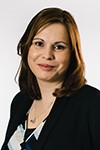 |
Eirini Mavritsaki
Faculty MemberBirmingham City University
Birmingham
United Kingdom |
I have been working in Research the past fifteen years and have achieved international recognition to outstanding level for both my leadership and research work. I have a sustained track record of success in interdisciplinary research in the field of Cognitive Computational Neuroscience. Key achievements include internationally excellent research that has made significant contribution in the field of attention with impact to other areas and translational applications; successful and sustained international collaborations with world leading research teams; experience of successful bids and coordination of big research teams. I have served on senior management and leadership roles, editorships in high profile international journals in my area of expertise, honorary positions in other Universities and have received awards for my strong portfolio of knowledge exchange and contribution in research.
|
| |
Motivation:
I have been working in the area of computational neuroscience for 20 years with different methods, from muscle modelling and modelling of EMG data (PhD thesis) to spiking neurons and model based analysis of EEG and fMRI data (current work). I feel that computational neuroscience contributed a lot to my personal and professional development and I feel that I can now give something back by supporting new researchers in the area.
OCNS and CNS participation:
Attended more than 5 CNS meeting(s), was reviewer for 2-3 meetings. OCNS member since 2001-2007 and re-register 2015.
Other information:
I have been manager for Journal of Experimental Psychology: Human Perception and Performance. I am special issue editor for two special issues that enhances the work of computational modelling to Cognitive Psychology and Social Cognition. I was offered the position of Associate Editor in Frontiers in Psychology.
|
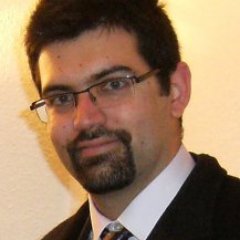 |
Jorge Mejias
Faculty MemberUniversity Of Amsterdam
Amsterdam
Netherlands |
I am an assistant professor of computational neuroscience at the University of Amsterdam (the Netherlands) since 2017. With a background in physics and mathematics, I did my PhD on computational neuroscience at the University of Granada (Spain) and postdoctoral work at the University of Ottawa (Canada) and New York University (USA). My research is focused on developing multi-scale brain models (mostly of monkey and mice) and understanding neural dynamics across scales, with a particular eye for heterogeneous neural circuits. On the teaching side, I¿m currently active on developing computational neuroscience courses to bring more biologists to the "modeling side".
|
| |
Motivation:
In the past, I supported OCNS as postdoc board member organizing student career workshops. This taught me the community's importance for promoting scientific interactions and for providing guidance to younger generations in the field. As a faculty member, I would like to renew my support to maintain OCNS' strong scientific reputation and its commitment to support early career researchers.
OCNS and CNS participation:
Attended more than 5 CNS meeting(s), was reviewer for more than 5 meetings. OCNS member since 2011.
Other information:
I have been an occasional science blogger and participant in outreach activities in schools (in Spain and USA).
|
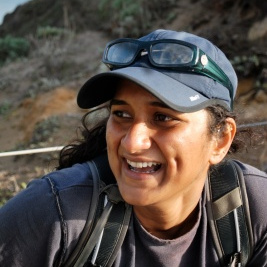 |
Suhita Nadkarni
Faculty MemberIndian Institute Of Science Education And Research, Pune
Pune
India |
I took the scenic route that led to Neuroscience. After a masters and a PhD in Physics I joined joining Terry Sejnowski and Herbert Levine in San Diego for a postdoc position. During my PhD, I developed the first computational model astrocyte¿neuron interactions. An independent postdoctoral fellowship at UCSD let me to shape my research projects and create lasting collaborations within the large community of researchers there. With Terry and Herbie, I built morphologically realistic models to address conspicuous gaps in our understanding at hippocampal synapses, in a regimes where direct experiments were difficult. After my postdoc, I joined Indian Institute of Science Education and Research Pune (IISER), India as a faculty member. Generous funding from Wellcome-Trust India Alliance helped me set-up my lab that investigates synaptic signaling in health and disease.
|
| |
Motivation:
The computational neuroscience community in India is small and there are few opportunities to interact. So I decided to start an unpretentious, organizationally lean, neuroscience meeting that eschewed all forms of formality. This was a big success and we have been inundated with requests to organize another one. The next one will be in 2020. I found the process of bringing people together scientifically rewarding. OCNS provides a wider platform to do this.
OCNS and CNS participation:
Attended 2-3 CNS meeting(s), was reviewer for meetings. OCNS member since 2012.
Other information:
I review research manuscripts on computational neuroscience, teach the subject in undergraduate and graduate courses, host several undergraduate students in my lab and train them to think about computational neuroscience. I have organized 4 international meetings focussed on computation in the brain. In the classroom and in invited lectures, I highlight the contributions of computational neuroscience in understanding brain function.
|
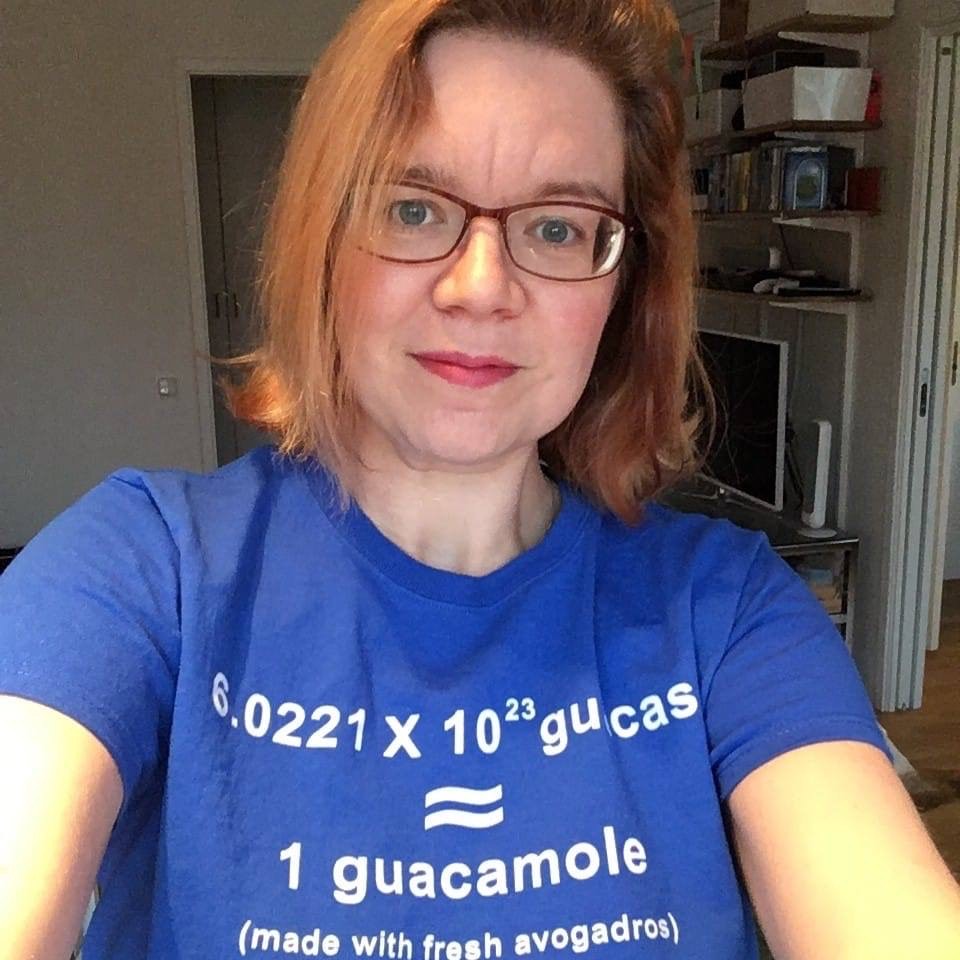 |
Malin Sandstroem
Faculty MemberInternational Neuroinformatics Coordinating Facility (Incf)
Stockholm
Sweden |
Malin Sandstrm grew up in a small town and moved to the Swedish capital Stockholm to study at the Royal Institute of Technology. After completing a 4.5 years engineering degree in applied physics, she did a PhD on computational modelling of olfaction in the lab of Prof Anders Lansner, with Jeanette Hellgren-Kotaleski as cosupervisor. Following her disputation, she has worked as a community engagement officer for INCF for ten years, helping community members find each other to collaborate and build community networks. She is also a published popular science author.
|
| |
Motivation:
Several members of the OCNS community, including senior people who supported me as a PhD, have asked me to apply because they think my contribution can be valuable. I feel I have roots in OCNS since it was instrumental to me during my PhD, and want to give back by supporting and strengthening the organization.
OCNS and CNS participation:
Attended more than 5 CNS meeting(s), was reviewer for meetings. OCNS member since 2005-2011, 2017.
Other information:
I work with the computational neuroscience community near daily, as part of my work at INCF. We help reasearchers set up projects and collaborations, and help students find training and support.
|
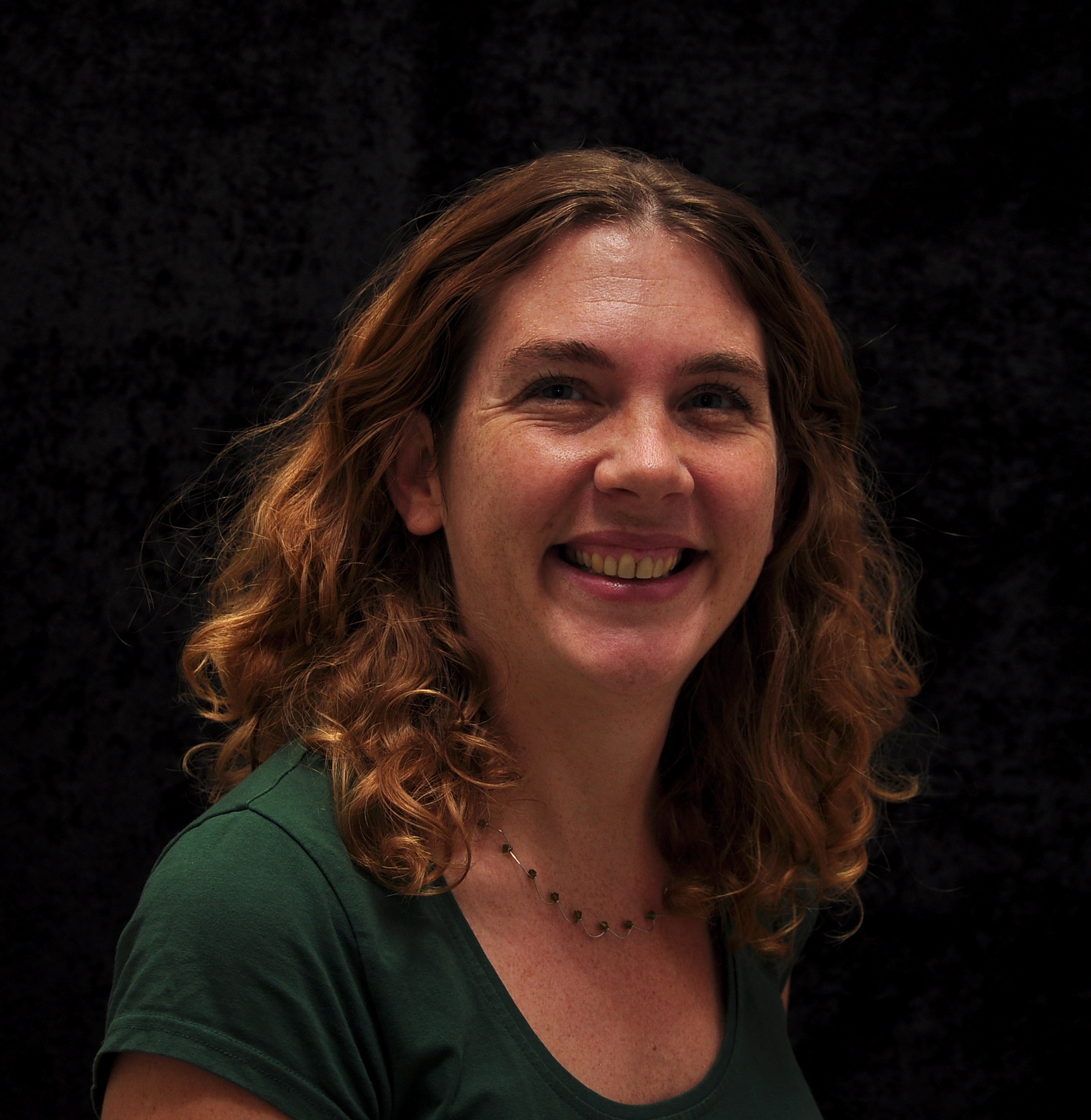 |
Fleur Zeldenrust
Faculty MemberRadboud University
Nijmegen
Netherlands |
I am an Assistant Professor at the Donders Institute for Brain, Cognition and Behaviour, Radboud University, Nijmegen, the Netherlands. With a training in both Physics and Neuroscience, I have a broad interest in quantitative solutions to all types of scientific problems. In my ¿Biophysics of Neural Computation¿ group, we study the relationship between the physical properties of the brain and its information processing: how are neurons and networks formed so that they can perform functions such as perception? Which characteristics of neurons and networks enhance or limit information transfer? We study these questions using a variety of theoretical methods, from (biophysical) neural network modelling to abstract coding models and advanced data analysis of experimental data. We collaborate closely with experimental neuroscientists, studying neurons, networks, and behaviour, unraveling together the fundamental functions of the brain.
|
| |
Motivation:
CNS 2006 was my first conference ever and OCNS has been very important for my scientific development since. I want to give something back. As director I would be able to help run and shape the future of this great organisation. Recent developments in experimental recording techniques and AI pose exciting challenges for models and analysis and I want to provide a platform and training for this.
OCNS and CNS participation:
Attended 4-5 CNS meeting(s), was reviewer for meetings. OCNS member since 2006.
Other information:
Next to my research I am very motivated about science education and outreach, for primary school students and their teachers (www.proefjes.nl), secondary school students (www.hersenolympiade.nl), university students (setting up CN courses, a BSc track, summer schools) and the general public (www.youtube.com/watch?v=OLKOdHqdm9M&feature=youtu.be#t=0m00s). I also I helped with the Paris (2013) meeting. I believe this experience will be valuable.
|
|














